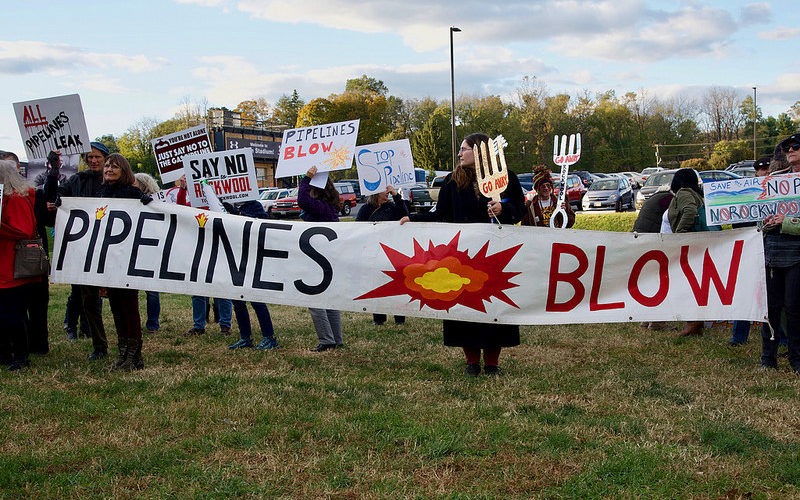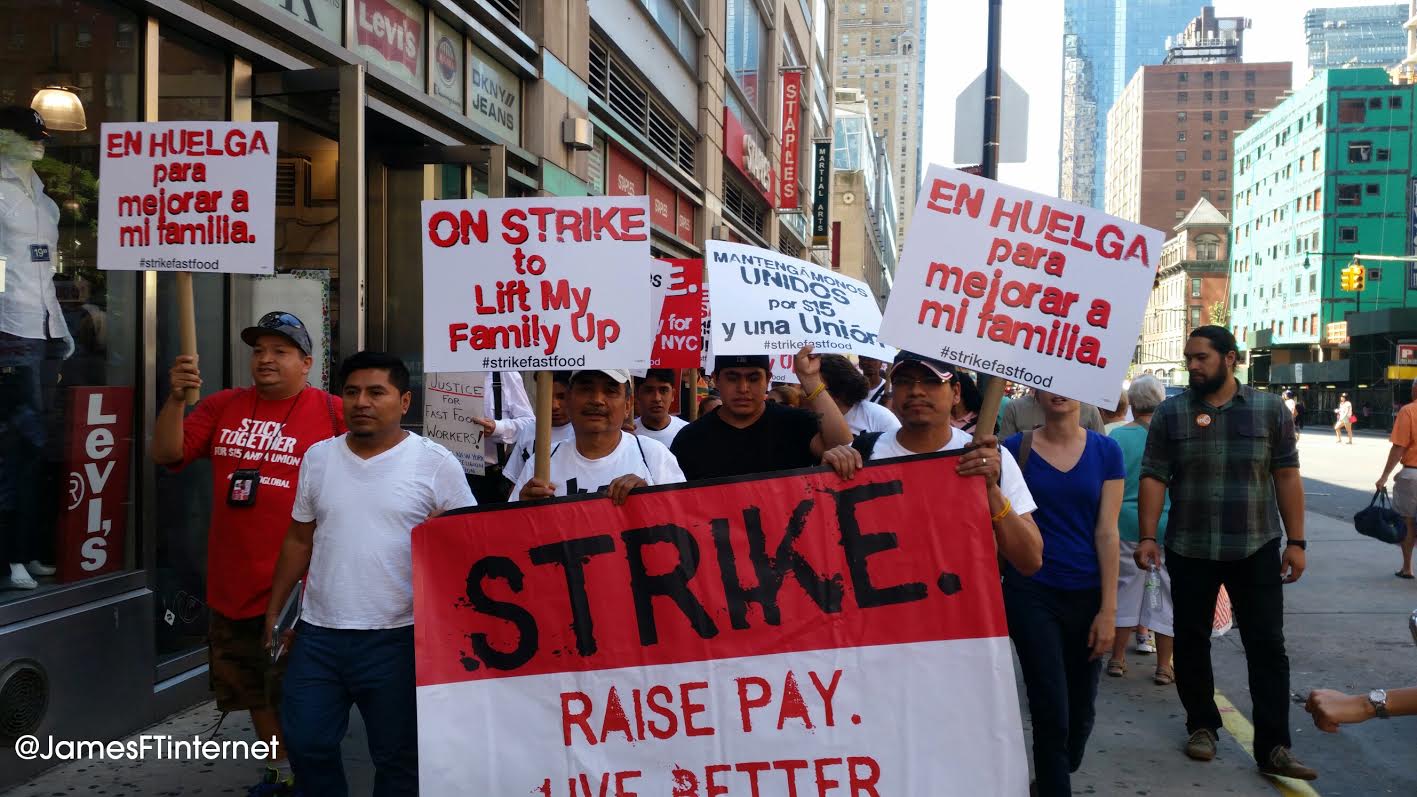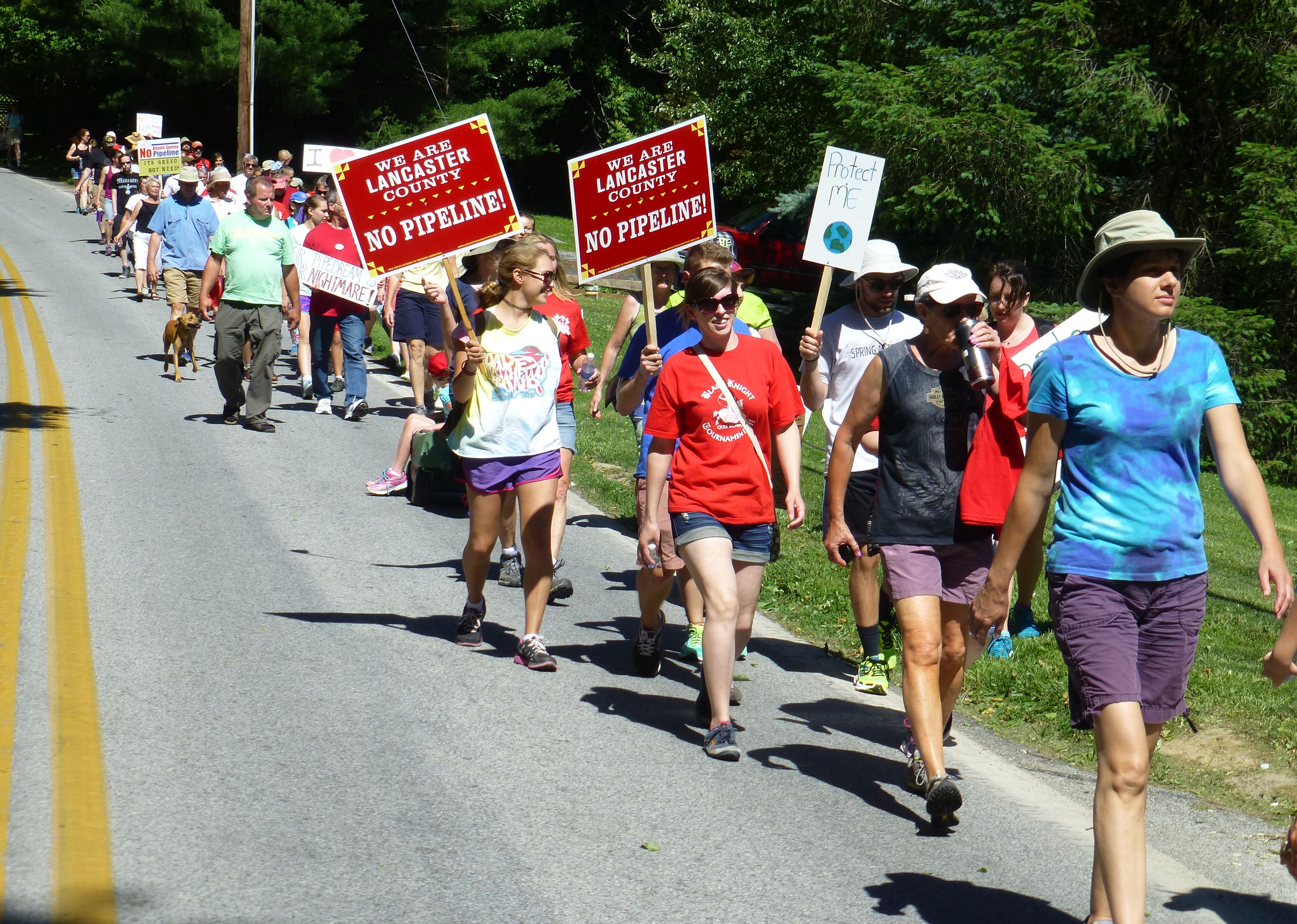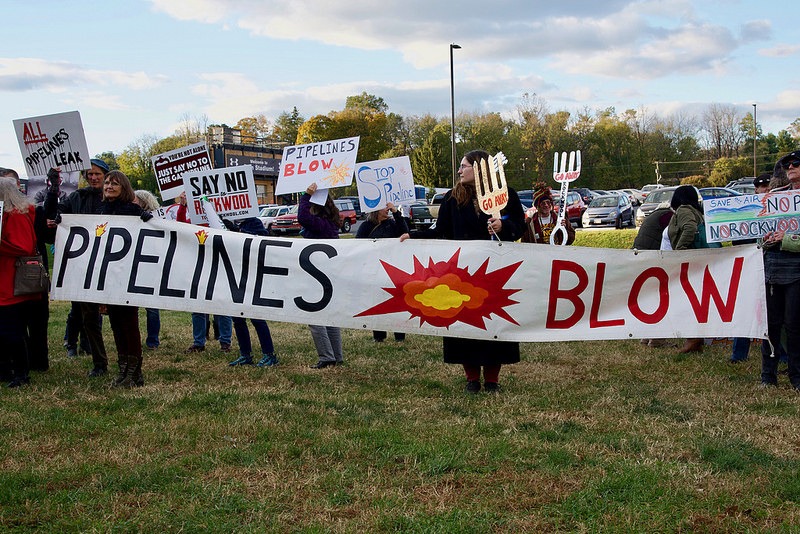
Hundreds of people packed the room at the Shepherd University Student Center Wednesday night to deliver impassioned statements to the West Virginia Public Service Commission on a permit for a gas pipeline extension in the Eastern Panhandle. The proposed extension of the Mountaineer Gas Pipeline would cut through Jefferson County to supply a new industrial park near Charles Town. At the moment, the only customer is the Rockwool mineral wool factory, which has just begun construction under a cloud of controversy.
Opponents of Rockwool are incensed that local and state governments subverted the county’s comprehensive plan, manipulated zoning codes and negotiated generous tax breaks and subsidies in secrecy. They object to the polluting emissions the plant would produce close to four schools and the potential for water contamination and catastrophic accidents.
“We don’t want it, we don’t need it, we can’t use it, and it’s going to harm our community,” Shepherdstown resident Tony Russo told the Commissioners.
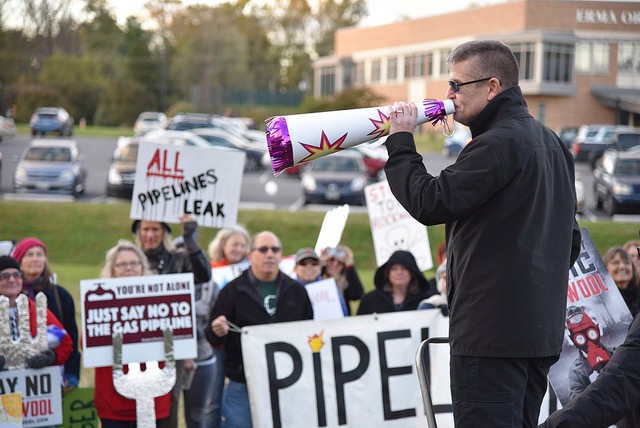
Five people out of about 50 spoke in favor of the pipeline extension at the hearing. Rockwool North America general counsel Ken Cammarato touted 150 jobs for local residents, with a “rippling effect” creating further jobs. There will be a $5 million benefit to the local economy, he said.
Rebecca McPhail of the West Virginia Manufacturers’ Association also noted the beneficial economic impact that jobs would bring. Both she and representatives from Argos Manufacturing praised natural gas as “renewable” and “clean” with less “climate change emissions.” (Research has found that, due to leakage, the life cycle greenhouse gas emissions of natural gas are higher than coal. Burning natural gas produces particulates and precursors to ozone, which can cause harmful effects on human health and the environment. Natural gas is a fossil fuel and not a renewable energy source.)
The Mountaineer Gas Pipeline extension might be crucial to Rockwool’s viability. The factory requires natural gas, coal and pet coke to fire its furnaces to a temperature so hot it can melt rock. Along with water and sewer infrastructure, local governments bodies signed an agreement to build a pipeline supplying the site with natural gas.
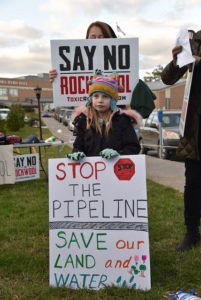 At a rally before the Public Service Commission hearing, nurse Shaun Amos pointed out the strategic importance of blocking the pipeline extension to Rockwool. Bringing up his experience with cancer patients, he compared Rockwool to the disease. “For cancer to grow, it needs a blood supply. This pipeline is Rockwool’s blood supply,” he said.
At a rally before the Public Service Commission hearing, nurse Shaun Amos pointed out the strategic importance of blocking the pipeline extension to Rockwool. Bringing up his experience with cancer patients, he compared Rockwool to the disease. “For cancer to grow, it needs a blood supply. This pipeline is Rockwool’s blood supply,” he said.
Part of the Eastern Panhandle Expansion Project, the Mountaineer Gas Pipeline will connect with the Potomac Pipeline to bring fracked gas from the Marcellus and Utica shale plays. At the hearing, David Yaussy, representing the West Virginia Oil and Natural Gas Association, called the expansion an “opportunity,” saying that the Eastern Panhandle is an area that is “deficient in pipelines.” But Rockwool and pipeline opponents fear an influx of gas might enable heavy industry to flourish in an area dependent on agriculture and tourism.
“All these years of enjoying healthy air and water here in Jefferson County were thanks to the fact that industry went elsewhere in search of natural gas,” Tracy Cannon of Eastern Panhandle Protectors said. “Now Rockwool threatens Jefferson County’s way of life. They threaten our schools, our water, our air, our farms, our beekeepers, our tourism, our historical sites–everything we value.”
For two years, Marylanders and those living in Berkeley and Morgan Counties fought the Mountaineer Gas trunk line and the Potomac Pipeline. They lost these battles when construction on the Mountaineer Gas Pipeline began this year and the Potomac Pipeline received final approval from the Maryland Department of the Environment in July. The Mountaineer Gas Pipeline is nearing completion after delays caused by heavy rains. Drilling under the Potomac may start by the end of 2018.
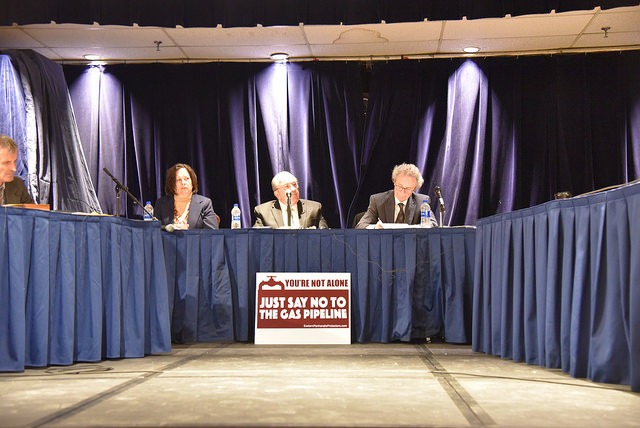
Jefferson County resident Mary Mattlage said that the Mountaineer Gas pipeline has already inflicted “an enormous amount of damage” on the Eastern Panhandle. Builders had encountered caves and sinkholes, she said, and drillers had broken four drill bits attempting to lay pipe under Sleepy Creek. Drilling has been going on at that location 10 hours a day for six months, Cannon said. She also reported that Mountaineer Gas had allowed thousands of gallons of muddy water to flow into a wetland.
The company treated landowners unfairly, she says, “badgering” them and paying pitiful sums to naive landowners for access to their land. The pipeline runs as close as 35 feet to some homes, and 80 homes are within the 150-foot blast radius.
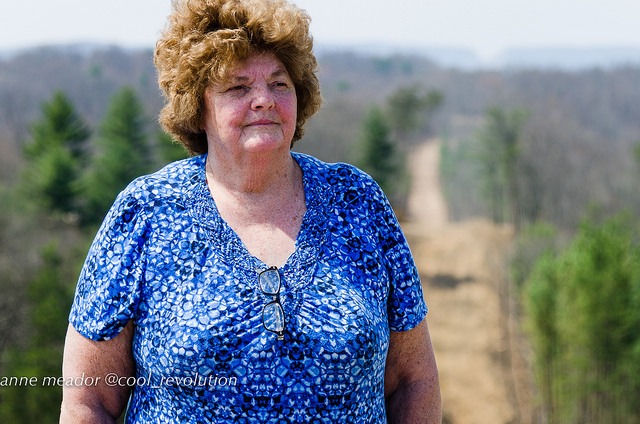
Mountaineer Gas took two families to court to get eminent domain. One of those sued, the Keseckers, own a 100-acre farm in Berkeley County. The pipeline cuts right through the middle. They can’t plant on it, must continue to pay property taxes on the land and are liable for damages to the pipeline. Patricia Kesecker says that pipeline builders on her land have told her that of all the jobs they have worked around the country, they have never seen a state with such lax environmental and safety rules.
Pipeline opponents say laying pipe is more dangerous in the Eastern Panhandle because of its special geology called karst, which Deborah Rochefort described as a “rocky sponge” in her remarks to the Commissioners. Upper Potomac Riverkeeper Brent Walls calls the risks of building pipelines in karst “monumental.” By mapping the density of pipelines and the karst geology of the region, he concludes that pipeline companies have up until now purposely avoided building in karst. Leaking and explosions are more likely to happen in karst geology because of the instability of the terrain.

Water contamination is also a distinct possibility when building a pipeline in karst. The West Virginia Geological Survey produced a detailed map of karst areas because of the concern of oil and gas operation contaminating karst aquifers and impacting drink wells.
“Approving this pipeline expansion essentially starts the clock on a devastating event that will contaminate private and public drinking water,” Walls said.
He reminded the Commission that Mountaineer Gas stated in its original application that the intended goal of the Eastern Panhandle Expansion was to provide back-up power for Proctor & Gamble, not for Rockwool or a planned industrial park in Ranson.
The West Virginia Public Service Commission will hold an evidentiary hearing on November 8 in 201 Brooks St., Charleston, WV 25301. The Commission is continuing to receive written comments on the permit application.

